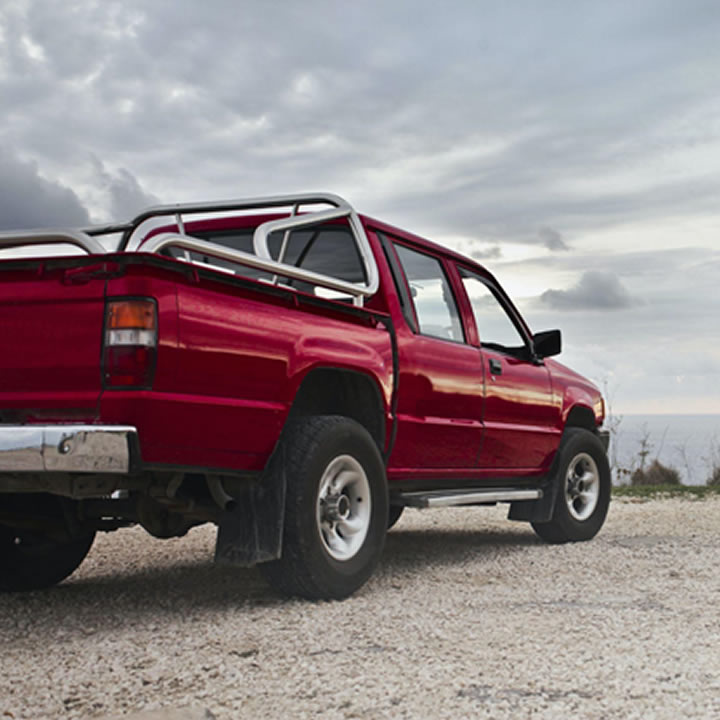Off-road driving is a thrilling adventure, but a safe outing involves more preparation than you might think. Packing the tools you will need for your trip is a vital step that you shouldn’t ignore.
Some of the factors to consider while preparing for an off-road trip are your vehicle’s age and shape, the driver’s expertise, and accessible storage capacity. Just think of it like packing a vehicle’s baggage is similar to organizing personal belongings for an extended vacation.
Set down things you believe you’ll need, prioritize, and eliminate the things at the end of the list. To help you settle with the long list, here’s a list of the essential off-road tools to suit you up for your adventure.
Bring Maps With You: A map will always come in handy. Carry maps and a compass with you at all times, and you should determine your current location on the map. GPS is an exemplary navigation system, but it will not work if it is malfunctioning, begins disconnecting, or loses power. You should also bring a map with you.
Hema Chart & Maps Australia has some of the best maps to have when traveling around.
Basic Toolbox: To keep your 4×4 running, you’ll need to pack the essential maintenance tools and materials with you on all off-road trips. In your toolbox, you can pack the basic tools such as small c-clamps, vice grips, wrenches, screwdrivers, sockets, channel locks, pliers, and others. You can easily organize these things in a plastic toolbox case and store them behind your vehicle.
Main Toolbox: In your main toolbox, you can store the bulkier equipment there. Most often than not, you may not use these tools as much, but it’s better to bring them off-road with your essential tools.
Recovery Toolbox: Getting in a bad situation off-road can escalate quickly. One moment you are driving and having fun, and suddenly your vehicle gets trapped in a muddy path. Consider equipping it for recovering operations for a smoother experience while traveling.
Your recovery tool kit should comprise kinetic energy snatch ropes or any sturdy utility strapping, anchor shackles, and a pair of gloves for grips. If your ride has a winch, it should have a winch rope dampener, pulleys, tree saver tow straps, and extra anchor shackles.
Bring a fifty-foot winch rope extension and additional utility straps for advanced hauling recovery and secluded trips.
Winches are particularly helpful if you get stuck in some muddy terrain. A back up car can be a good anchor for your winch. With a little maneuvering on both cars, your winch can help you get loose out of the mud.
Even without a backup car, all you need is a sturdy anchor like a tree, a post, or even a big rock for your winch.
Fluids Kit: Your vehicle will need certain liquids to hydrate itself too. You have to make sure you have safely packed the necessary fluids of your 4×4 enough for the whole trip. Remember, it’s always best to bring the primary fluids with you on off-road travels.
Primary fluids may include brake cleansers, power steering lubricants, brake fluids, engine and transmission oils, a can of WD-40, ignition fluid, and bearing grease. You also have to stuff rags or washcloths. Remember to close or seal the caps on these containers as these fluids can leak.
Spare Parts: Create a spare pack based on your car, mode of transportation, and proximity of your route from possible service centers. Repairing on the road is one thing, but carrying a part will save time when you arrive at a shop.
Bring in parts that’ll most likely break down during a long trip. If you find yourself in a service center along the way, they might not have the parts to fix your vehicle. Having such parts saves the time and resources to get your truck fixed.
Survival Bag: Make a grab bag of essential personal survival equipment, such as maps, water to drink, food for sustenance, extra clothing, matches, headlamp, whistle, and a phone. You can customize your survival travel bag according to the weather or climate conditions depending on where you’re going.
Takeaway: Don’t proceed on the journey unprepared. By preparing beforehand, your chances of encountering problems are lessened. Instead of worrying and having to fix your problems on the road, you’ll get to enjoy your trip. It is preferable to have all of the required tools with you for the whole off-road adventure.
Lastly, always inform immediate contacts on where you’re going out. Most of the time, people tend to forget this one important step before venturing out. Informing a family member, a friend, a co-worker or anyone close to you increases your chance of survival should anything bad happen to you on your journey.
Remember, a lot could go wrong on a trip, it’s best that you’re prepared.

